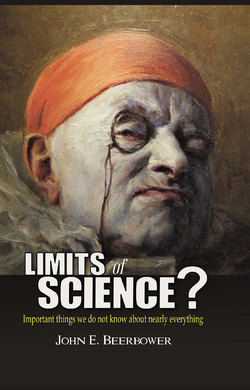Читать книгу Limits of Science? - John E. Beerbower - Страница 12
На сайте Литреса книга снята с продажи.
The “Problem” of Induction
ОглавлениеPhilosophers of science have devoted considerable attention to what has been called the “problem of induction.” The problem is interesting, because the process which philosophers call induction reflects the principle means by which man has made sense of the external world.
The issue arises from the difficulties in articulating a reason why it is logical to conclude that event B will occur subsequent to an occurrence of event A, based upon the fact that on occasions in the past, B has been observed to follow A, or, in another formulation, how we can justify inferring from a particular event or series of events a rule that applies generally in other cases or will apply to future events.
The process of induction essentially assumes that apparent patterns that are observed in the course of natural events are likely to reoccur. At a minimum, induction assumes that there are patterns or regularities in the physical world.
The question for philosophers is whether there is a logical or philosophical “principle of induction.” To take the classic example, just because the Sun has come up every morning for all of recorded history (as far as we know) is there a sound logical or philosophical basis (or argument) to believe that it will come up tomorrow morning? Clearly, the fact of regular occurrences in the past in and of itself does not prove that the same thing will occur in the future; indeed, one could speculate that in some contexts it could be more likely that something different will happen, at least, eventually. I can grant the philosopher these points, on their own limited terms; but, I would not be willing to conclude that we are not justified in believing that the Sun will come up tomorrow. The logical fact that historical patterns do not guarantee future repetition does not make the expectation of such repetition unreasonable (or, unscientific).
